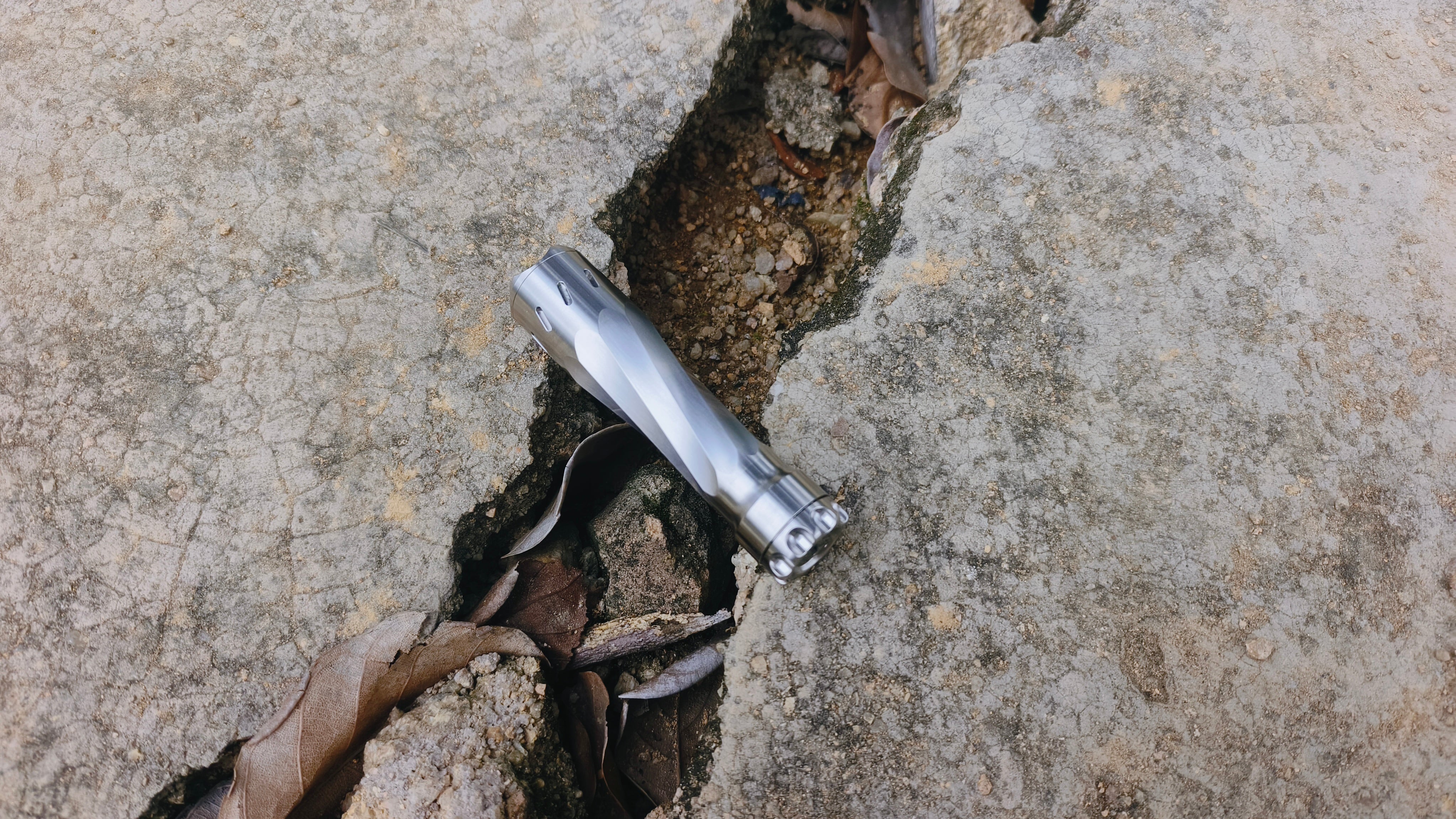When choosing a rugged EDC flashlight, you’ll often see terms like "IP68" or "IPX8" in the specs. But what’s the difference? And why does IP68—like the ZorKryth Champ—offer superior protection compared to standard waterproof flashlights?
In this guide, we’ll break down IP ratings, explain why IP68 is the ultimate standard for dustproof and waterproof flashlights, and help you choose the best everyday carry (EDC) light for extreme conditions.

IP68 vs. IPX8: Key Differences for Flashlights
The IP (Ingress Protection) rating is an international standard that defines a device’s resistance to dust (solid particles) and water (liquids).
- The first digit (after "IP") refers to dust resistance (0-6).
- The second digit refers to water resistance (0-9).

Why IP68 is Better Than IPX8
✔ Fully sealed against dust, sand, and dirt – Critical for hiking, desert use, or construction.
✔ Guaranteed waterproofing at greater depths – IP68 often means longer submersion times (e.g., 30+ mins at 2m).
✔ More rigorously tested – IP68 flashlights undergo stricter certification.

IP68 Flashlight Durability: Where It Matters Most
An IP68 EDC flashlight isn’t just "waterproof"—it’s built to survive:
🌪 Dust storms & deserts – No internal damage from fine particles.
🌧 Heavy rain & floods – Won’t fail when submerged.
🏔 Mountain climbing & caving – Resists mud, snow, and impacts.
🔧Tactical & military use – Reliable in sand, swamp, or extreme weather.
Note: Some brands claim "waterproof" but skip dustproofing. IP68 ensures both.

How to Test if a Flashlight is Truly IP68
Not all "IP68" flashlights are equal. To verify:
1. Check the manufacturer’s testing specs (e.g., "2m for 1 hour").
2. Look for independent reviews (real-world submersion tests).
3. Avoid vague terms like "waterproof" without an IP rating.
Pro Tip: The ZorKryth Champ is independently tested for IP68 compliance, ensuring maximum reliability.
IP68 vs. Other Ratings: Which Do You Need?

If you need a flashlight for:
- EDC & urban use → IPX7/IP67 may suffice.
- Extreme outdoor, survival, or professional use → IP68 is mandatory.
Why the ZorKryth Champ’s IP68 Rating Makes It the Ultimate EDC Flashlight
✅ Fully sealed against dust, dirt, and sand – No internal corrosion.
✅ Submersible beyond 2m – Survives drops in rivers, lakes, or floods.
✅ Military-grade durability – Trusted by outdoor pros, first responders, and survivalists.
[→ Shop the ZorKryth Champ (IP68 Rated)]

Final Verdict
For most users, IPX7/IP67 is enough. But if you need a flashlight that won’t fail in extreme conditions, IP68 is the only choice.
Need an indestructible EDC flashlight?
IP68-rated protection comes standard with the ZorKryth - Champ Series flashlight, crafted entirely from premium metals. Beyond its impressive performance, this flashlight shrugs off punishment—acing our two-meter drop tests and functioning flawlessly in extreme temperatures from -20°C to 70°C. 🔦💧
🔦 The ZorKryth - Champ is LIVE on Kickstarter!
👉 Secure yours NOW: https://www.kickstarter.com/projects/zorkryth/zorkryth-wrgb-edc-flashlight


Share:
ZorKryth Champ Is LIVE on Kickstarter – Don't miss out!
How to Clean and Maintain Your EDC Flashlight for Longevity